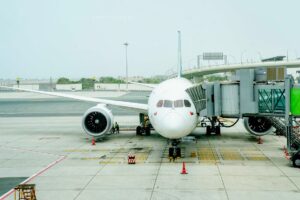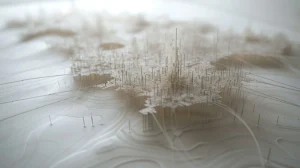As Africa dreams of unity, prosperity, and a future where it stands on equal footing with the world’s great powers, one of the key pillars of this vision is security. Security encompasses not just protecting the continent from external threats but also safeguarding the freedoms and rights of its people. In the United States of Africa, the creation of a robust African Army is not just about military strength but about balance, empowerment, and preserving democracy for all Africans.
This vision of Africa’s army consists of two integral forces: the Regular Army, responsible for defending against both internal and external threats, and the People’s Army, which ensures the protection of the rights and freedoms of the people, especially in times of political upheaval or social unrest. This concept aims to redefine the role of the military and bring about a new era of security and governance in Africa.
The Regular Army: Defending the Motherland
The foundation of any strong nation lies in its ability to protect its borders, people, and sovereignty. For Africa, this means creating an army capable of defending against foreign aggression and handling domestic threats such as terrorism, civil unrest, or regional instability. A well-established defense system and intelligence agency will play a critical role in safeguarding the continent’s interests.
The Defense System & Intelligence Agency Bureau
To protect the Motherland, the African Defense System would be designed to respond quickly and effectively to any threat, both foreign and domestic. This would include:
– Deployment of an integrated Defense System, combining land, air, and sea forces, capable of responding to military threats on all fronts.
– Creation of an Intelligence Agency Bureau, a central intelligence body responsible for gathering and analyzing information to aid decision-making and strategic planning. This would ensure that leaders can make well-informed decisions regarding national security and defense.
Example: One of the most successful intelligence agencies globally is the Mossad in Israel, known for its effectiveness in gathering intelligence and preventing external threats. A similar intelligence agency within Africa could play a pivotal role in countering terrorism and other transnational threats.
Building a Self-Sufficient Defense Industry
A key aspect of protecting the Motherland is developing a homegrown defense industry capable of manufacturing the weapons, technology, and systems needed to defend Africa. The African army would spearhead the development of a domestic arms industry that could not only meet its own defense needs but also position Africa as a key player in the global defense market.
By mastering the entire defense supply chain — from research and development to manufacturing and logistics — Africa can reduce reliance on foreign arms suppliers and strengthen its sovereignty.
Example: South Africa has made significant strides in building its own defense industry with companies like Denel, which produces high-tech military equipment, including missiles and artillery. If scaled across the continent, such industries could make Africa less dependent on foreign powers for its defense needs.
The People’s Army: Protecting Freedom and Democracy
While a powerful army is necessary for the defense of the nation, democracy and freedom of speech must always be safeguarded. This is where the People’s Army comes into play. This army is not designed to fight external enemies but to protect the rights of African citizens, ensuring that the government does not abuse its power.
Preserving Freedom
The People’s Army will be tasked with ensuring that the government does not oppress the people and that citizens’ rights are protected at all times. Its primary mission will be:
– To protect the children of Africa from both foreign and domestic threats.
– To ensure due process is respected by overseeing legal proceedings and preventing illegal arrests.
– To intervene in cases of government oppression, particularly during protests or moments of civil unrest.
The People’s Army will be a safeguard against the potential abuse of power by the state. In times of political tension, this army will intervene to ensure that protests remain peaceful and that citizens are not harmed.
Example: In South Africa, during the apartheid era, the military was often used to suppress protests and civil rights movements. The concept of the People’s Army would ensure that, moving forward, the army would serve to protect peaceful demonstrations rather than quash them.
Protecting Democracy in Times of Protest
A democratic society requires the freedom to protest, voice opinions, and demand change. In Africa, too often, protests have been met with violent repression. The People’s Army would be a force specifically dedicated to protecting the right to free speech and peaceful assembly.
This army would ensure that:
– Protests are protected, preventing the police or military from using excessive force against civilians.
– No lives are lost during protests, and no public or private property is damaged without justification.
– The People’s Army will act as a shield for the people, enabling them to express their views without fear of violence or oppression.
Example: France has experienced large-scale protests, and the role of the French military in these situations has been to maintain order and protect citizens. The African model would aim for a nonviolent intervention, where the army ensures the safety of both the protestors and the broader public.
Balancing Power: Protecting the Rights of the Citizens
In any democracy, the military’s role should be limited and focused on protecting the people rather than the government. The People’s Army will be an essential check on power, ensuring that no political authority can silence dissent or violate the rights of its citizens.
Through its core principles, the People’s Army will ensure that:
– Protests, freedom of speech, and freedom of opinion are no longer repressed.
– A balance of power is maintained, with the military answering to the people, not to political elites.
The People’s Army will be the ultimate protector of African democracy. It will be a force that ensures that power remains in the hands of the people and that any oppressive or undemocratic action by the government will be swiftly countered.
Conclusion: A New Vision for Africa’s Defense
The vision of a United States of Africa cannot be realized without a strong, balanced defense system that protects the continent from all threats — both external and internal. While the Regular Army will ensure that the Motherland is safeguarded from foreign and domestic military threats, the People’s Army will ensure that the freedoms of African citizens are never compromised.
By drawing lessons from countries around the world that have built successful defense systems, such as Israel’s intelligence network, South Africa’s arms industry, and Rwanda’s community policing models, Africa can build an army that not only defends the borders but also protects the very principles of democracy and freedom that the continent strives to uphold.
Together, these two forces — the Regular Army and the People’s Army — will create a secure, just, and free Africa. This vision will ensure that Africa’s future is protected by an army that serves both its people and its sovereignty, creating a continent that can stand tall and proud in the global community.




